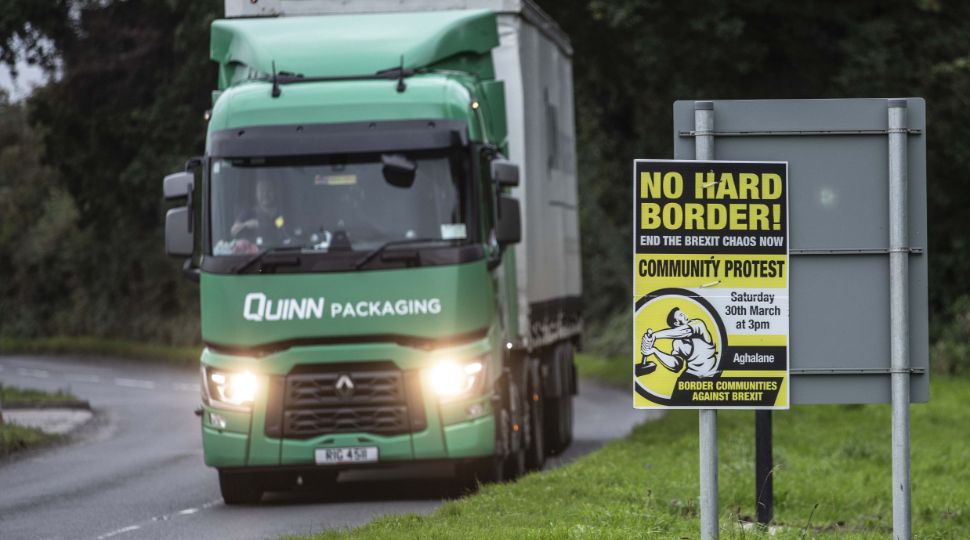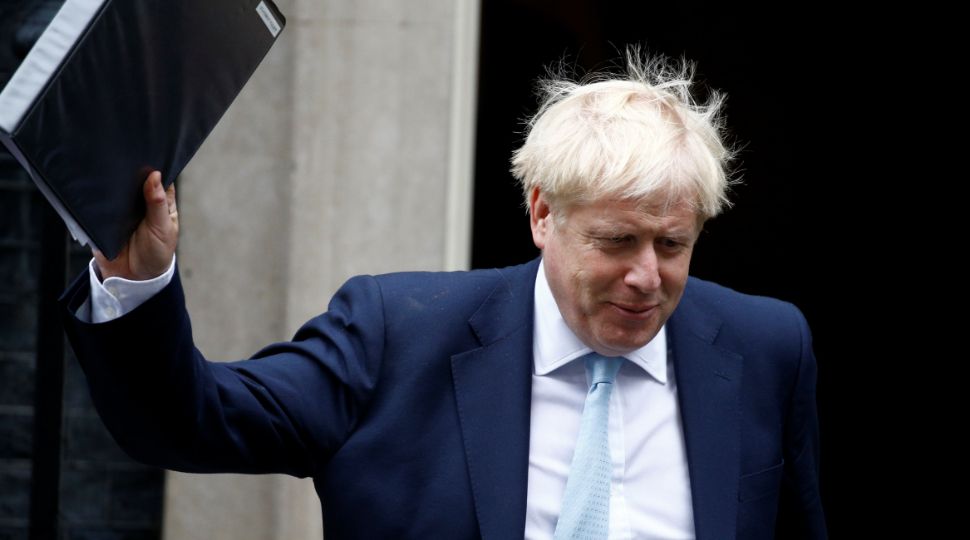The Republic of Ireland and the Risk of "No-Deal" Brexit

Irish Policy Towards Brexit
The Republic is the most vulnerable EU member to Brexit because of its geography, economic model, and responsibility for the EU’s land border with the UK, symbolising the island’s division in 1920. Therefore, Ireland has adopted a proactive attitude towards the EU-UK negotiations. This has resulted in setting the priority for the entire EU the negotiating mandate (May 2017) to maintain the island’s open border and protect the peace process in Northern Ireland. In addition, the Republic has been promoting a “soft” Brexit, in which close EU-UK relations would be maintained. This would benefit the Irish economy, which is strongly connected to both the EU and the UK markets.
The EU-UK withdrawal agreement of 24 November 2018 took into account the objectives of the Re The so-called “Irish protocol” providing for the backstop mechanism—meant to ensure the integrity of the EU single market while maintaining an “invisible” land border on Ireland—ensures that the harmonisation of customs and regulatory policy in Northern Ireland with the EU is irreversible. It also provides, as a first step, for the UK’s customs and regulatory union with the EU, protecting Ireland’s economic interests. This is at the expense, however, of the creation of a customs and regulatory border between Northern Ireland and the rest of the UK. For this reason, the backstop has become the principal reason for the rejection of the agreement by the UK House of Commons three times. The Republic so far has refused to support the UK proposal to renegotiate the agreement but has supported Britain’s efforts to postpone the Brexit date twice.
Domestic Context
The Republic’s policy towards Brexit reflects a national consensus based on a negative assessment of the UK’s withdrawal in public opinion and the political parties. An additional important reference point is the 2016 Dáil elections and the upcoming ones in February 2020, which will fall on the 100th anniversary of Ireland’s division.
The February 2016 election results, respectively, were: Fine Gael (FG), 25.5% of the votes / 49 seats (out of 158); Fianna Fáil (FF), 24.3% / 44; Sinn Fein (SF), 13.8% / 23. In June 2017, the FG government of Prime Minister Leo Varadkar was formed on the basis of the “grand parliamentary coalition”—FF has been supporting the FG minority government in the Dáil until Brexit in exchange for co-shaping Irish foreign policy. However, FF has not entered into government or suspended its competition with FG. Sinn Fein’s position is based on anti-establishment criticism of both of the other parties and demanding the urgent reunification of the island. Moreover, SF also has been the strongest Republican party in Northern Ireland. Summing up, the political rivalry contributes to hardening the positions of the key Irish parties in relation to Brexit.
Brexit also catalyses the debate about the division of the island of Ireland. The genesis of the parties is directly linked to the events of 1920 and 1969. The governing FG is the heir to the supporters of the 1920 compromise with the UK, FF as its opponents, and the modern SF grew from the protest against the division of the island during the Troubles (1968–1998). Making the Republic’s position in the EU-UK talks more flexible would, therefore, be costly for all the political parties.
The Backstop and the NI Peace Process
From the EU perspective, the backstop is to provide a safe border for the single market while avoiding the return of border installations in Ireland. From the Irish perspective, the mechanism is also seen as a unification instrument that strengthens the integration of the NI economy with the Republic’s. It also strengthens the political position of the Republic as a representative of NI on the EU forum.
The design of the backstop, however, conflicts with the 1998 Good Friday Agreement (GFA), which ended the Troubles. In it, the Republic and the UK accepted the self-determination of Northern Ireland and the power sharing between the Unionists and Republicans. In light of the GFA, changes in the constitutional status of the province should be approved by the NI Assembly or in a referendum. The backstop, as permanently changing the NI relations with the rest of the UK and with the Republic, should, therefore, be supported by both Unionists and Republicans. However, the mechanism is not supported by either the Democratic nor Ulster Unionists (DUP, UUP). There has also been no vote on this matter.
Since the fall of the Northern Ireland Executive in January 2017, both major parties in the province have been interested in extending the dispute: DUP, supporting Johnson’s government in the House of Commons, wants to restore UK direct rule in the province while SF’s goal is a unification referendum.
The Interests of Ireland and Other EU Countries
From the EU perspective, a “no-deal” Brexit would result in a lack of a transition period and a sudden change in the rules of economic cooperation with the UK, disruption of financing under the MFF 2014-2020, loss both of the legal frameworks for the protection of the rights of EU citizens in the UK and security cooperation. In addition, the Republic would have to reintroduce land-border controls and invest in independent critical infrastructure (still integrated with the UK). The forecasted losses would be 2.5% of GDP for the EU and 4% of GDP for the UK in the first year. The losses of the six most-vulnerable EU countries would amount to 4% of GDP for the Republic and about 1-1.5% of GDP, respectively, for Germany, France, the Netherlands, Belgium, and Poland (the so-called “5+1” group).
Ireland’s efforts to alleviate the effects of Brexit include the reconstruction of the port of Dublin, new shipping connections with continental EU (e.g., with Rotterdam) and the commencement of works on an energy bridge with France. However, the Irish government has not yet published the plans to secure the EU’s external border. This limits in Ireland the awareness of the full consequences of the lack of the EU-UK agreement and at the same time raises doubts in the EU about the security of the single market. In June, the “5+1” group started a dialogue in which they maintained support for the backstop but demanded a specific plan to secure the land border.
Conclusions and Perspectives. If in the UK Johnson maintains control over Brexit, then a “no-deal” exit will be very difficult to avoid. It would require EU-UK negotiations in September-October to review both the Irish position (influencing the EU’s) and the UK’s positions, although in both cases the chances of change are limited. In Ireland, the obstacles to a change in its position include the symbolic status of the backstop and the limited influence of the FG on the Dáil. Statements by Irish politicians indicate an acceptance of the risk of land-border controls.
From the EU perspective, the harmonisation of NI customs and regulatory with the Union is crucial as a basis for the continued “invisible” land border. The necessary solutions in this area are the essence of the backstop. However, the most inflammatory issue in EU-UK relations, namely the time-unlimited character of the backstop, is of lesser importance to the entire EU. The Irish Protocol’s objectives are achievable if its validity is limited in time—until technical and organisational solutions are developed that would replace it. Although they are not currently available, it is possible to develop them on the basis of existing ones. For the success of the negotiations, it would be crucial to realistically estimate the necessary time, revise the backstop, and build a consensus around such a modified contract. In Northern Ireland, the mechanism should be legitimised in accordance with the GFA. The current form of the backstop makes achieving the opposite effect to that indicated in the EU negotiating mandate highly probable.
The “no-deal” Brexit will increase the competition for EU funds as Brexit-affected Member States seek compensation. This will affect talks about the structure of the MFF 2021–2027 and how the funds will be spent. Financial solidarity on the part of the EU is clearly expected in Ireland while its infrastructure needs and expected scale of economic losses indicate that it would be a consumer of a disproportionately large proportion of such funds.
From Poland’s perspective, an information campaign for Polish citizens and businesses in the UK and Ireland is also urgently needed.





